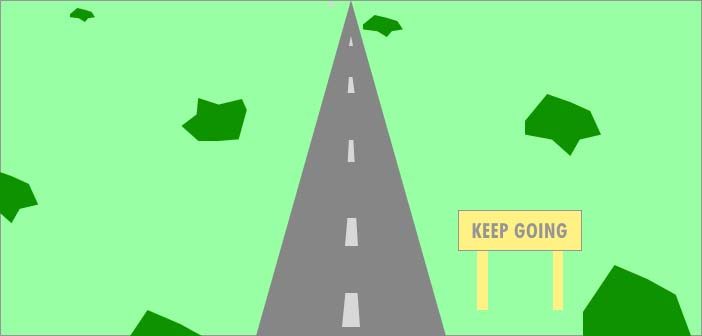
Lily Tympanick
That dad on the sidelines whooping and hollering, the one who can’t contain his enthusiasm when a play is well-made or stifle his frustration when something goes wrong? That’s my dad, your classic, ultra competitive sports parent.
He’s the one with the perfect attendance record and the extra loud voice. He’s the one balling his fists, oversharing his opinions about my performance and getting entirely too bent out of shape when he disagrees with a referee’s call.
At games, it wasn’t easy being the object of so much fervent attention.
Dad was an athlete himself — well into his 50s, he played on two ice hockey teams and had a low-single-digits golf handicap. You might say he took being an athlete seriously.
I noticed other parents encouraged their kids, even when they flubbed easy shots. “That’s OK, sweetie! Great try!” they’d say.
So, instead of appreciating the fact that dad arranged his work schedule so he could attend every volleyball and basketball game, I let his behavior make me mad and embarrassed. On game days, I hoped he’d be somewhere else.
Then, I almost got my wish.
Just before sophomore year of high school and in the middle of volleyball preseason, I got a frantic call from my mother. Dad was in the hospital, it was bad, come right away.
The next awful days were a blur of surgeons, beeping machines and visiting family. An artery in my dad’s neck had dissected, or torn, sending clots to his brain, causing two massive strokes and significant brain damage.
My dad, the athlete who proudly kept himself in top physical shape — who carried his clubs instead of taking a cart, who skated circles around 30-year-old teammates — would need to relearn how to swallow and speak, and might be in a wheelchair for the rest of his life.
Of course, at age 15, having your world turned upside down doesn’t mean you get to let everything just come to a stop.
My mother took a leave from her job to handle the crisis, and my unspoken instruction was to go on as normal. So I went back to school, played volleyball and then basketball.
In hindsight, I probably did the opposite of what you’re supposed to do when something really horrible happens. I bottled up my feelings instead of sharing them with friends. I rejected my mother’s suggestion to talk to a therapist. At school and on the court, I just went through the motions. It got to the point where sadness began to feel normal. I didn’t know how to move forward.
Then, my dad showed me.
Early on, doctors hadn’t given my mother much hope about my father’s recovery. But it turned out those experts hadn’t factored in the strength and single-minded focus he learned from being an athlete.
By the time of my last basketball game of the season, dad had surprised everyone by being able to walk hesitantly using a walker. But he hadn’t left the rehab facility since he’d arrived in September.
Normally, the rehab facility didn’t let patients leave. But dad’s determination to attend my last game was communicated, and the paperwork was approved.
When I saw my father come through the gym doors, I was astonished — his visit was a total surprise. In my entire life, I’d never been so overjoyed to see someone.
I was barely over my shock and still tingling with happiness when I heard dad’s voice, more slurred now, rise above the din of the crowd. Hearing it, I finally understood what he’d been communicating — encouraging — over all those years and games. It was a message about the value of pushing through pain, trusting yourself and never quitting.
These are values that sports taught me, and my dad models them every day.
Lily Tympanick is an associate news editor for The Brown and White. She can be reached at [email protected].






Comment policy
Comments posted to The Brown and White website are reviewed by a moderator before being approved. Incendiary speech or harassing language, including comments targeted at individuals, may be deemed unacceptable and not published. Spam and other soliciting will also be declined.
The Brown and White also reserves the right to not publish entirely anonymous comments.
1 Comment
Thanks for reminding us, or encouraging us, to appreciate our parents.